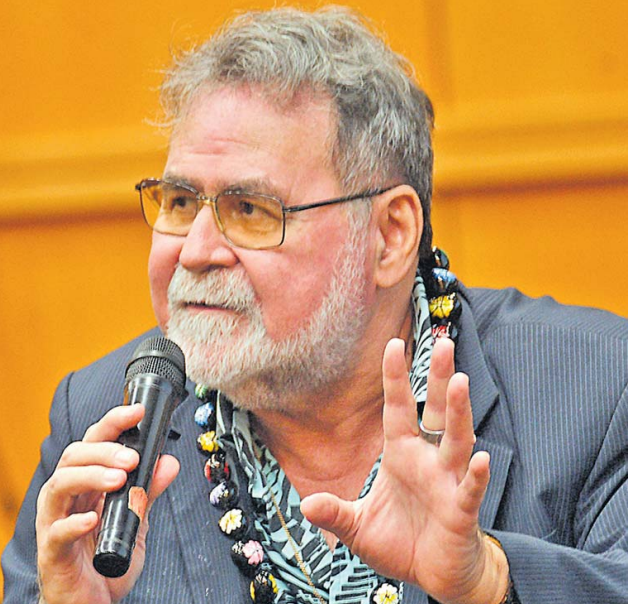FIJI needs to push for a national study that examines the link between corporal punishment and domestic violence across Pacific communities.
Samoa Supreme Court judge and former United Nations Committee Member on the Rights of the Child, Justice Vui Clarence Nelson made the call to Fiji’s Ministry of Justice, Education, and human rights organisations during the National Consultation on Corporal Punishment in Suva.
He said while international research had shown a strong correlation between corporal punishment in childhood and violent behaviour in adulthood, the Pacific still lacked its own region-specific data.
“One suggestion I would make, there are many studies that link corporal punishment to domestic violence,” Justice Nelson said.
“But what we don’t have is a Pacific-specific study that says that. We only have the Palagi (white men) studies that say that for their countries.
“I think we need specific studies that make this link because that link has been made all over the world, and it’s true in the Pacific as well.”
Justice Nelson said his experience in the courtroom supported this pattern, noting that many domestic violence offenders came from violent or dysfunctional family backgrounds.
“All the defendants that I have dealt with who are brought before the court for offences of domestic violence, you go through their history, they come from violent and dysfunctional families.
“That’s where they are bred. And the result is domestic violence.”
He said establishing this link through research could help policymakers and communities better understand the long-term harm of corporal punishment.
“The reason why that link is important is because you and I may disagree about whether corporal punishment is good or bad, but we will all agree that domestic violence is bad.
“If you link the two and convince people that corporal punishment perpetuates domestic violence, I think that’s a valuable tool you can use.”
Justice Nelson said while ending corporal punishment would not be easy, ignoring the issue would only allow the problem to worsen.
Physical punishment ‘never the answer’
TEACHERS shouldn’t be responsible for disciplining your children.
Samoa Supreme Court judge and former United Nations Committee Member on the Rights of the Child, Justice Vui Clarence Nelson delivered this message to parents during the National Consultation on Corporal Punishment held in Fiji, urging families to take greater responsibility for their children’s behaviour and development.
“I hear what the teachers say, and I think we really fail our teachers,” he said.
“It’s the same in my country (Samoa) and the same in Fiji.”
He said teachers faced increasing challenges managing classrooms but were not given the right tools or training to address behavioural issues in nonviolent ways.
“Teachers have huge problems controlling classrooms, but we don’t equip them with the strategies to deal with those problems when they are being trained.
“We don’t train them in other forms of discipline, and I think we should. It should be part of every teacher training course.”
Justice Nelson acknowledged that some students can be unruly or violent but stressed that physical punishment is never the answer.
“The solution is not to hit them.
“You are there to teach them, not to teach them to hit other people, not to teach them that violence is the solution.”
He said alternative, non-violent methods of teaching and parenting were effective tools that should be adopted by teachers, parents and communities alike.
“The alternative ways of teaching, the alternative ways of parenting are really good tools we can use for teachers, for parents, and even in the community.”



